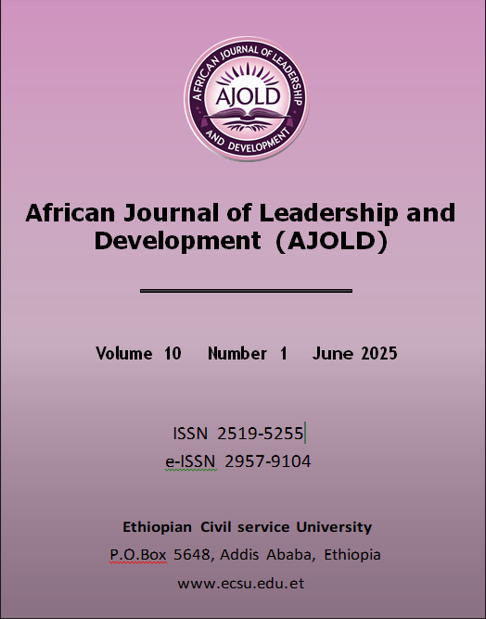Reclaiming Civil Society Space in Ethiopia: An Analysis of Civil Society Trends, Structural Challenges, and Distribution Gaps
DOI:
https://doi.org/10.63990/2025ajoldvol10iss1pp78-94Keywords:
Civil Society Organizations (CSOs), Consortium, Civic Space, Ethiopia, Legal and Institutional SetupAbstract
This study examined the state of civil society organizations (CSOs) and consortia in Ethiopia. It looked at how they had grown, what structural problems they faced, how laws have changed, and what spatial differences exist. The study used a qualitative method, focusing on document reviews, interviews with key informants, and group discussions. The study found that while legal changes such as Proclamation No. 1113/2019 have made civic space more open, consortia are still weak due to monetary problems, political interventions, poor partnering, and lack of faith among the organizations involved. Moreover, CSOs are not spread evenly, as they favor cities, and their focus often misses important needs at remote and local levels. To help these organizations get better, we need to make them stronger, spread their services to more areas, create clear ways to handle financial resources, and ensure the involvement of remote and local CSOs and the community at the grassroots level.
Downloads
Published
How to Cite
Issue
Section
License
This work is licensed under a Creative Commons Attribution-NonCommercial 4.0 International License






